The Middle East region covers the eastern and southern coasts of the Mediterranean Sea, the Arabian Peninsula, and Northern Africa.
Iran, Iraq, Kuwait, Lebanon, Oman, Bahrain, Cyprus, Egypt, Israel, Jordan, Qatar, Saudi Arabia, Syria, Turkey, Palestine, United Arab Emirates, and Yemen are among the 17 nations that make up its land.
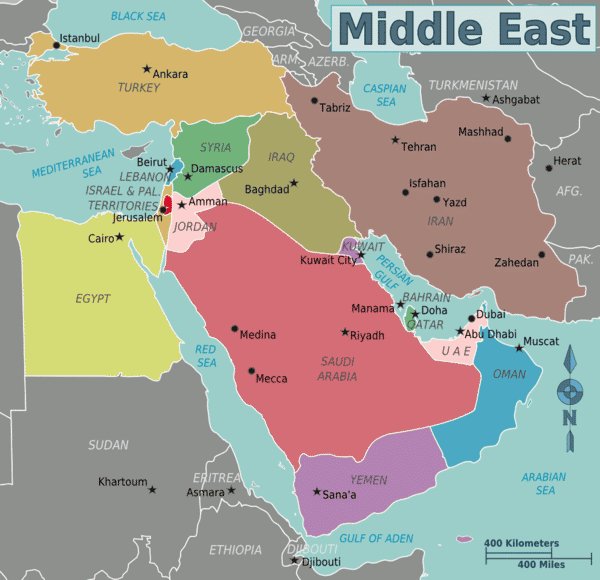
The Middle East region is best known for its rich oil and gas reserves. What’s more, it’s home to three of the world’s main religions: Islam, Christianity, and Judaism.
In the last several years, the Middle East has become a major source of revenue for many foreign investors interested in nations like the United Arab Emirates, Qatar, Saudi Arabia, Bahrain, and Kuwait.
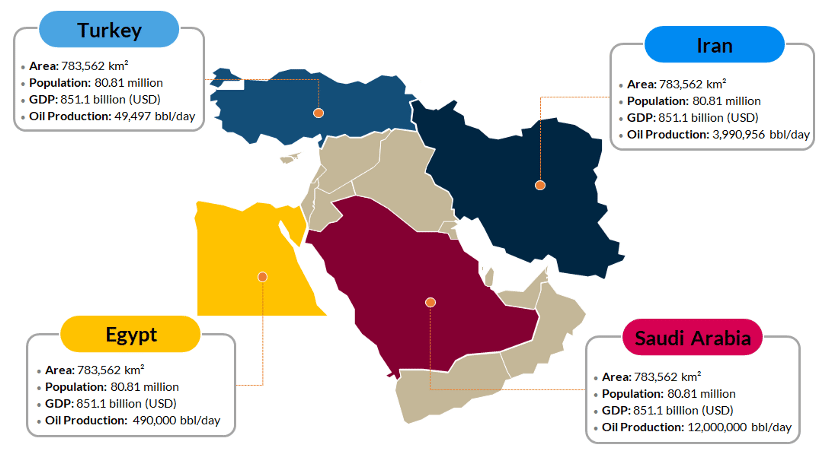
The local cultural customs, which have significantly influenced local business etiquette, must be well understood before starting a firm in any of these nations. Neglecting these cultural considerations might result in missed opportunities for success.
If you want to reap all the benefits that the Middle Eastern market offers, you need to become well acquainted with the local customs and traditions, inside and outside the business sphere.
For this purpose, the following blog will help you familiarize yourself with the common practices of business in the Middle East and the Middle Eastern Culture.
Are you looking for translation services in the Middle East?
Milestone helps you seamlessly translate content & localize your website, products, and services for more reach, better conversions, and greater sales.
Economic development and advantages for business in the Middle East
The Middle East region is home to a wide range of economic systems, including rentier and free-market systems, as well as centralized socialist and oil-exporting systems.
The largest economies in the region include Iran, Saudi Arabia, Turkey, Israel, the UAE, Egypt, Iraq, Kuwait, Qatar, and Oman. These countries account for over 5% of the world’s GDP.
In 2022, Iraq experienced 9.13% GDP growth, which is the highest in the region. The rest of these countries account for between 5–3% of GDP growth during the year. Experts forecast steady growth in the upcoming year.
The region is widely known for the production and export of oil. What’s more, it is amongst the biggest exporters of gas in the world.
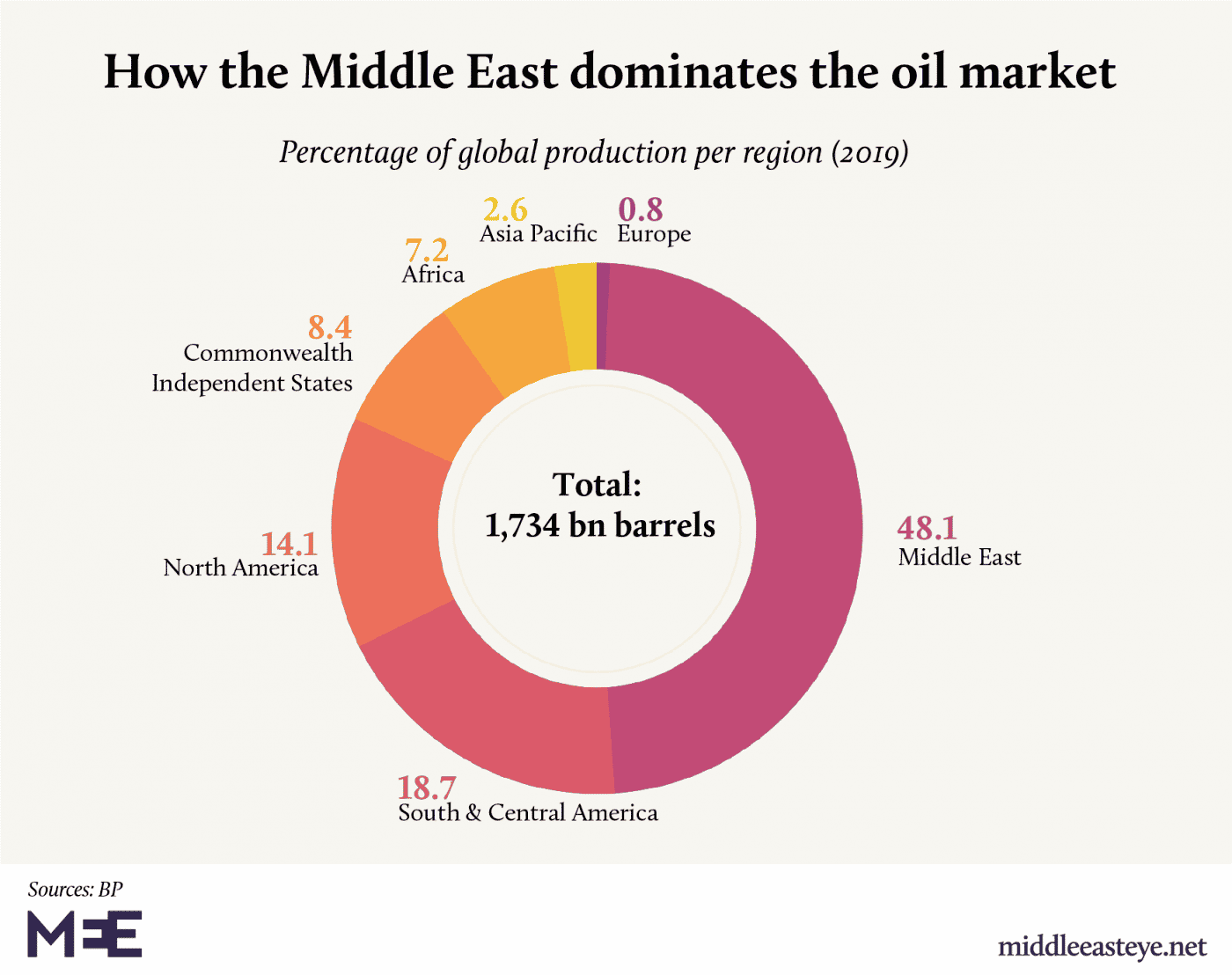
This has significantly impacted the region’s rapid economic development through wealth creation and labour utilization. In recent years, the countries of the region have been aiming to diversify their economies by offering several advantages to foreign investors:
Good taxation system
Similarly to Asia and Europe, Middle East countries have undertaken efforts to improve their tax system so that it is more beneficial to business owners. These benefits include lower corporate taxes. In some countries, such as the UAE, some corporations might be completely excluded from paying taxes.
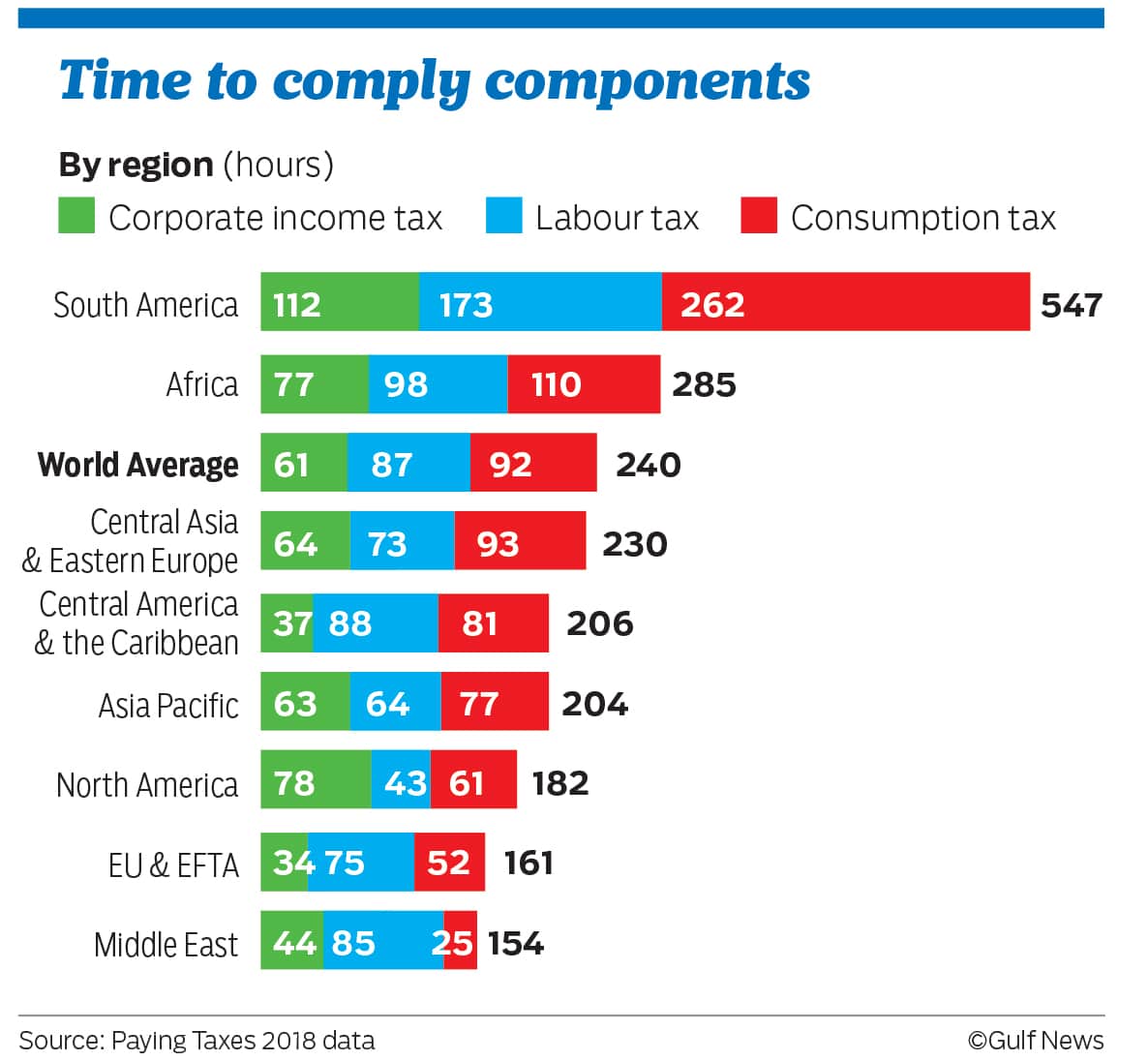
Good infrastructure
The Middle East region has a strategic location, which provides easy access to different markets. The local governments have taken advantage of that, building exceptional infrastructure. The region offers world-class ports and highways, as well as some of the best commercial facilities in the whole world.
Good infrastructure has a favourable impact on the overall companies’ operations. In recent years, foreign investors in the financial, development, research, and innovation sectors have invested in the region due to easy access to ports, highways, airports, etc.
Educated workforce
A big part of the local population is well-educated, so the region’s labour force consists of people with a university degree or higher.
This has led to big advancements in the spheres of power and energy, healthcare, retail and logistics, and transportation.
The Gulf Cooperation Council
The GCC is made up of some of the wealthiest nations in the Middle East, which share common legal systems and have access to valuable natural resources. Investing in the countries of this union offers a simple company registration process, special investment regulations, and several tax benefits.
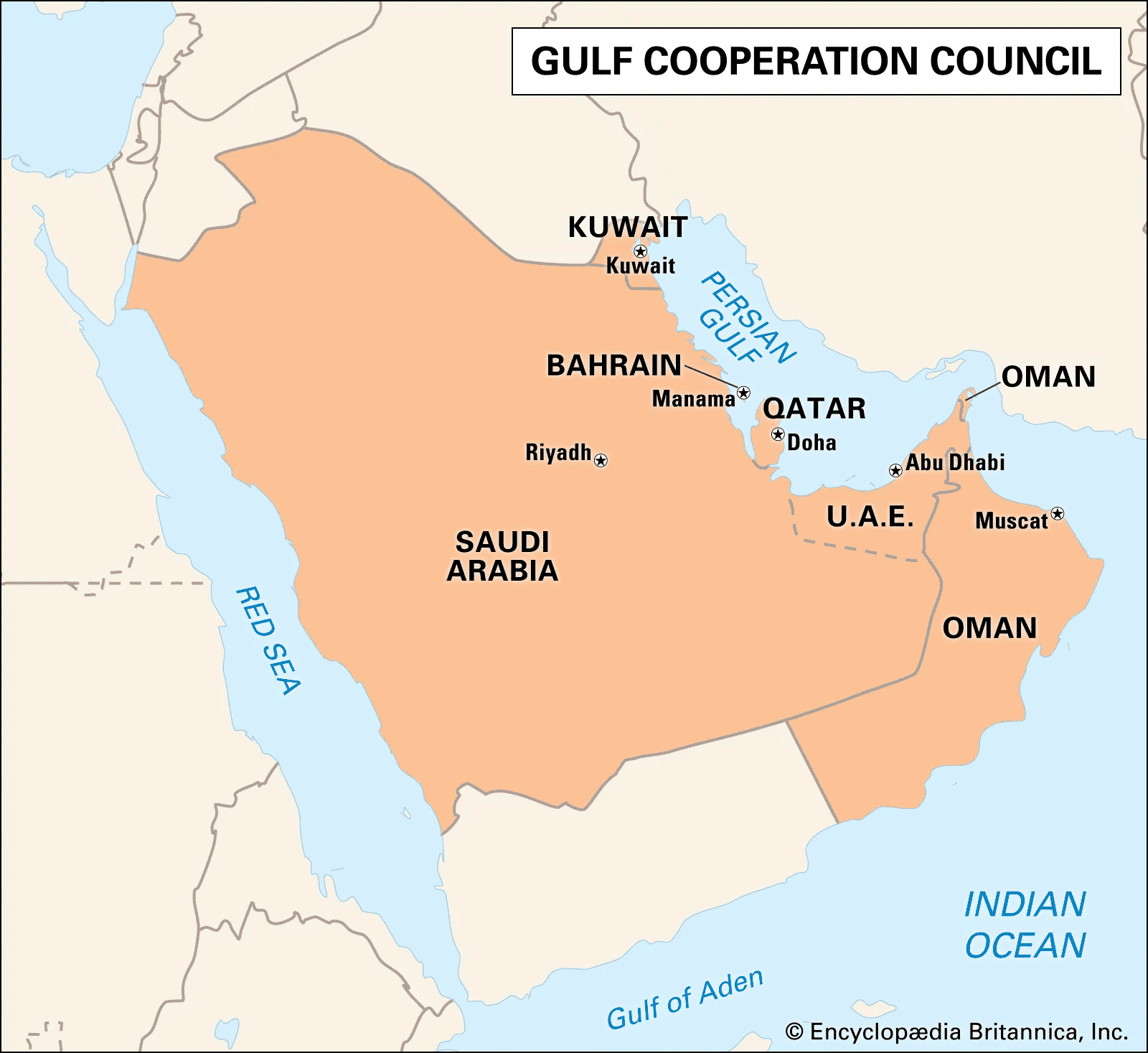
Overall, the Middle East region is a natural commerce hub, situated at a crossroads between Europe, Africa, and Asia. Due to good infrastructure, lower taxes, and a well-educated workforce, the region is among the best places in the world to do business.
Most common business languages in the Middle East
The Middle East is, linguistically, a very diverse region. This plethora of languages is present in the business sphere as well. Here are some of the most common languages of business in the region:
22 countries have made Arabic their official language, making it one of the most frequently spoken languages in the area. Modern Standard Arabic is taught at educational institutions and is used for legal documents, news, speeches, books, newspapers, and, of course, in business documentation and meetings.
Also read: Which Arabic Dialect To Use & Arabic Voice-over Challenges
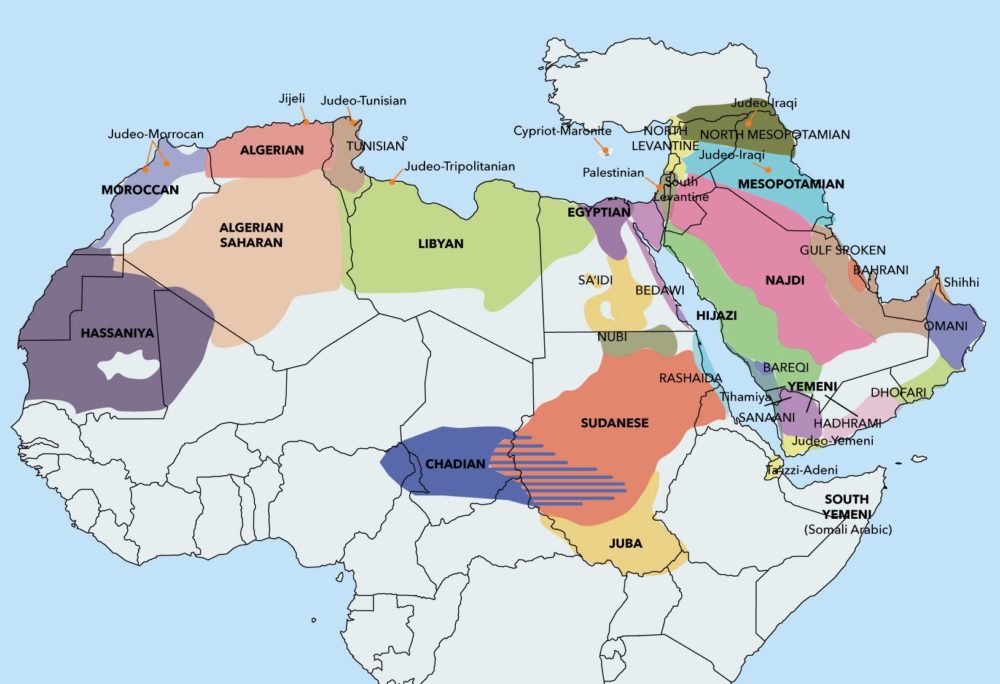
Also read: Languages Spoken In Texas & Its Bilingual Education System
Persian is an official language only in Iran. Nonetheless, it is spoken in several other countries and has over 100 million speakers.
Turkish is primarily spoken in Turkey. Turkish, however, is the third most widely spoken language in the Middle East due to the large number of Turks who live there.
It might come as a surprise to you that Hebrew is very common in the region. Indeed, there are quite a few Hebrew native speakers in the Middle East, which makes it another important language for business.
Despite not being a native language, Russian is now widely spoken in the area thanks to Zionist immigration that took place decades ago. In addition, due to good military ties, there are a lot of Russian speakers in Israel and Syria.
The United Arab Emirates, Israel, Egypt, and Iraq are just a few of the nations in the region where English is commonly spoken. English is also often used for business, especially between local and foreign investors.
Still, speaking in the local language shows respect to the hosts and, thus, is greatly appreciated. Also, the overall proficiency level of the region is considered to be rather low. This means that communicating in English might not always be possible.
Also read: What Are The Main Languages Spoken In The Middle East?
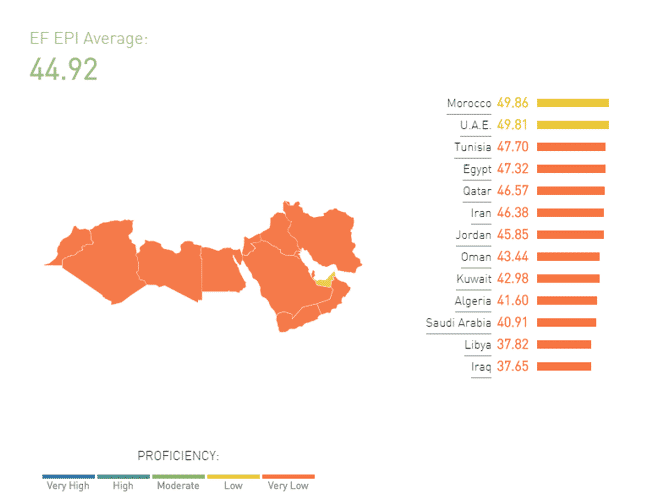
Common Cultural Considerations for doing business in the Middle East
There are quite a few cultural considerations that you have to keep in mind if you want to have a smooth experience while doing business in the Middle East.
Being aware of certain social-cultural differences in the Middle East would help you make a good first impression.
Language
You can learn some basic words in the local language, such as greetings and common expressions. For example, Assalamu Alaikum meaning “peace be upon you”, Marhaba meaning “hello”, and Ma̔al-salāmah meaning “goodbye”, are commonly used in the Arab-speaking world.
This would show the locals that you respect and value their culture and linguistic heritage.
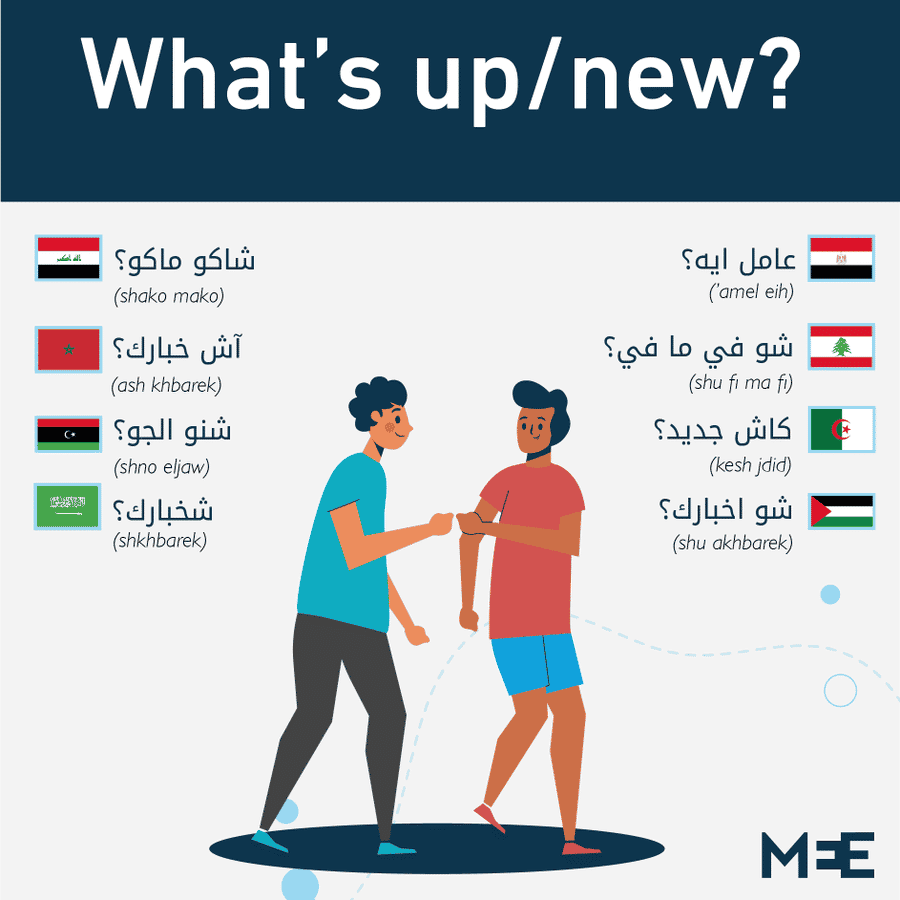
Also read: 10 Reasons Why Arabic Is An Incredibly Interesting Language?
Greeting rituals
Besides the language, you can try to learn the local greeting rituals. While shaking hands is becoming increasingly common, there are still some cultural differences that have persisted.
For instance, in some parts of the Middle East, one is not allowed to shake hands with a woman, while in other parts, it is a common way of greeting to touch each other’s cheeks.
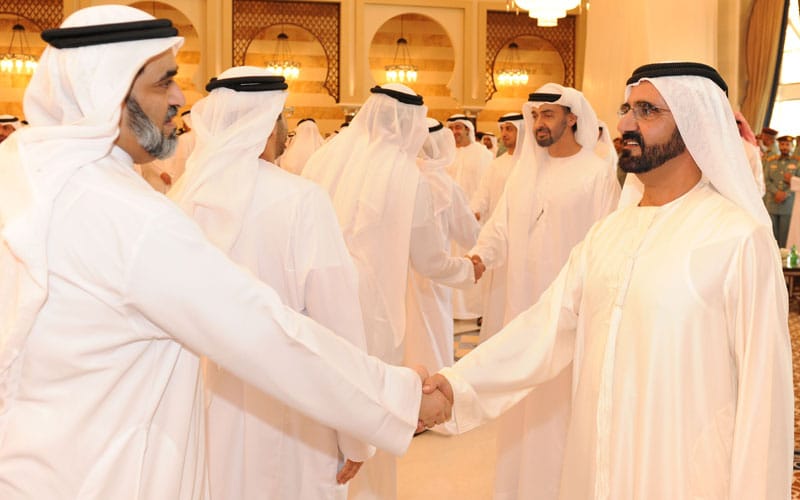
Source:
Social considerations
While Middle Eastern people are well-known for their hospitality and friendliness, it is best to avoid being too close, especially with someone of the opposite sex. It is best to avoid physical gestures and touching.
Another social consideration you need to keep in mind is the so-called ‘right-most person tradition’. When exiting a room, for example, you should let the right-most person leave first. The same holds when serving guests—you should always start from the right side.
Religion and Politics
Religion is central to people’s lives in Middle Eastern Arab countries, so some common religious practices must be considered.
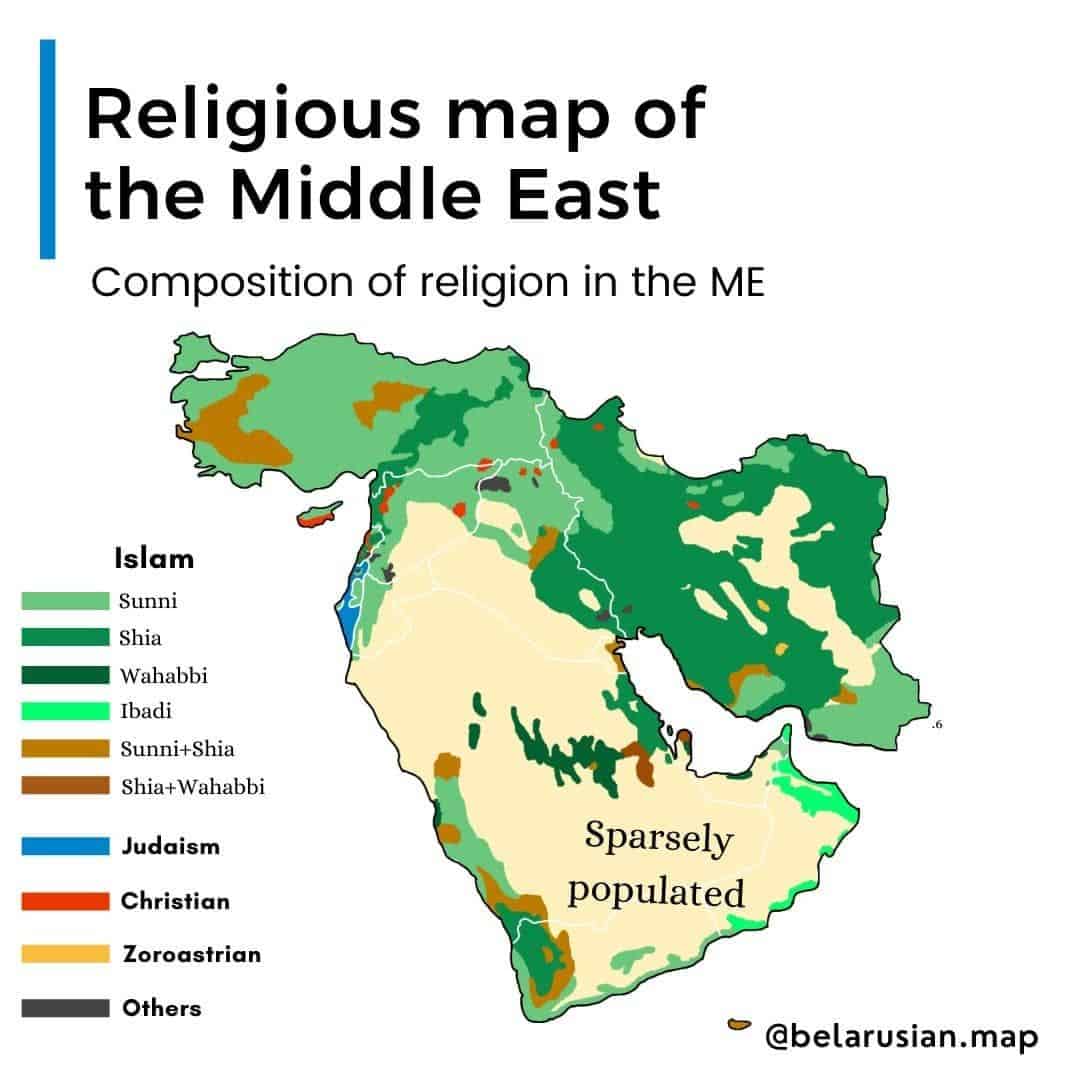
What’s more, you should be careful during conversations. While listening, attention is a must. You should also stay away from discussions about religion and politics. Especially when it comes to disagreeing and arguing, always be respectful.
All in all, showing awareness and consideration for the local cultural, religious, and social customs will indicate a great deal of respect for the locals. This is always greatly appreciated and will make your stay much more enjoyable.
Also read: Doing Business In China – The Cultural Differences You Need To Know
Connect With Middle Eastern Customers In Their Native Language
Milestone helps you seamlessly translate content & localize your website, products, and services for more reach, better conversions, and greater sales.
Middle Eastern Business Etiquette
Culture, traditions, and religion have all influenced business etiquette in the Middle East. Indeed, following local cultural considerations will help you integrate faster into the business sphere and build stronger bonds with local investors.
How to dress?
Male business attire does not significantly differ from the business attire of men in the Western world. A nice, classical suit is the common standard. Jewellery and accessories should be kept to a minimum.
Just keep in mind that men should always keep their jackets on unless the host removes theirs or gives permission.

When it comes to female business attire, there are quite a few differences in what is well-accepted in the West. Depending on the country, the rules might be stricter, so good research in advance is always a must.
Some common rules include that women must cover their faces in public places. Their business attire should cover their arms and legs.
Also, it is usually not acceptable for foreigners to wear some of the local traditional clothing, such as taqiyah, keffiyeh, or thobe.
Also read: Localizing Colours For Different Cultures
How to interact with your business partners?
Business interactions in middle eastern culture are very different from those in Western society. For example, in most Middle Eastern countries, the private and professional spheres merge.
This means that doing business in the Middle East often revolves around personal relationships, family values, as well as honour and trust. Thus, in some cases, rules might be bent to accommodate the needs and wishes of a very close personal connection.
In addition, business communication in the Middle East is much more relaxed and informal compared to the West. For instance, holding the hand of your male business partner while showing him around is very common.

What’s more, planning a meeting far in advance is not a common practice, since family matters might arise in the meantime. To avoid having to cancel a meeting at the last minute, Middle Easterners usually appoint a date in the next few days.
When it comes to greetings, you might as well try to learn some of the local expressions. The proper verbal greeting is ‘Asalamu Alaykum’ and the appropriate response is ‘Wa Alaykum salam’, which translates to ‘and upon you be peace’.
When it comes to interaction with the opposite sex, men should be particularly careful. For example, when interacting with a woman, a man is not allowed to shake a woman’s hand unless she offers her hand first.
Last but not least, Middle Easterners often use proper names when talking to their business partners. For instance, William Johnson will be addressed as “Mr. Johnson”.
Also read: Top 6 Languages For Your Business
How to plan your business meetings?
Business meetings in the Middle East have a different pace and structure compared to the Western ones. There are quite a few things that diverge regarding what is accepted as proper behaviour.
The lack of a strict agenda for the meeting is one of the most significant differences between the Eastern and Western ways of doing business. What’s more, interruptions are acceptable and pretty common.

Discussions and negotiations are central to business meetings in the Middle East. Everyone should express their preferences and wishes openly. Using high-pressure tactics might end up being counterproductive since Middle Easterners tend to take their time when making decisions.
Additionally, in the Middle East, punctuality is expected from everyone involved in a business meeting. However, Middle Easterners are not always punctual themselves.
Indeed, being late for a meeting won’t ruin your deal. A polite excuse will suffice in most cases.
What role does religion play in business in the Middle East?
Foreigners should be aware of the prayer habits of the locals and their religious holidays.
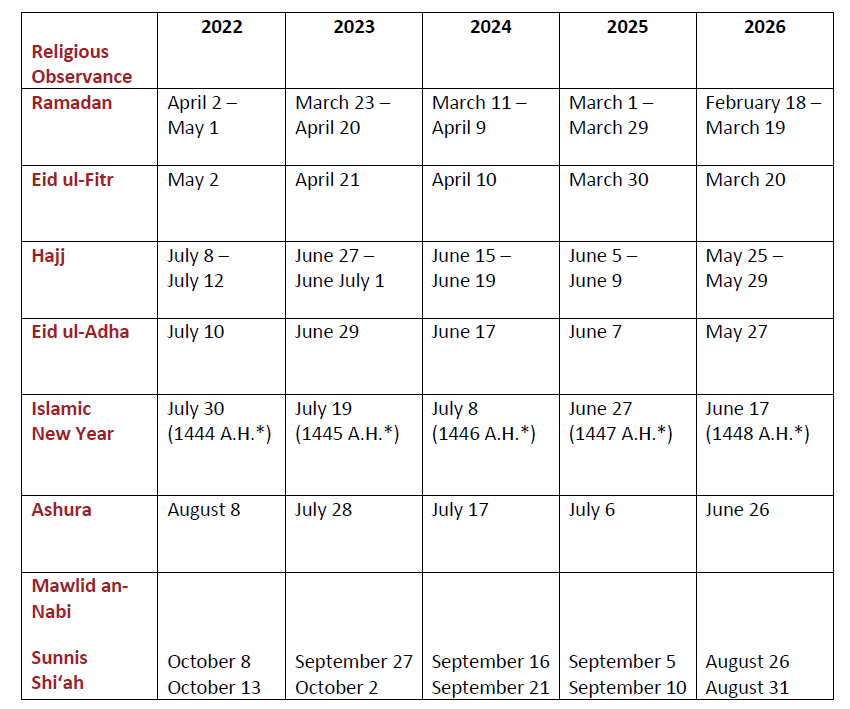
Muslims are required to pray five times a day, so their business schedules should be adapted around those times. What’s more, all Muslim men are required to attend congregational prayers every Friday.
You should plan your work accordingly. For instance, you should always provide a prayer break if there is an extended meeting.
Sending an email or calling somebody on the phone during these times is considered disrespectful, so pay close attention to the time of the day.
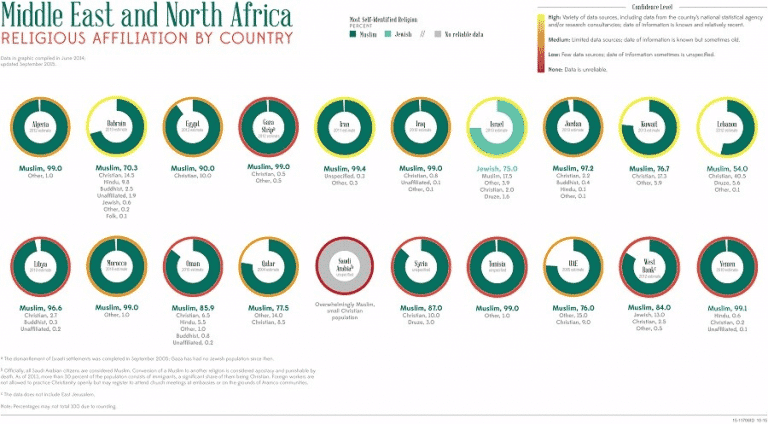
During the month of Ramadan or any other religious festivities, business activities are reduced to a minimum. You should consider this as well.
What is dining etiquette?
Dining etiquette does not diverge significantly from that of Western society. Being respectful to the host and wearing business attire is a must. Guests are encouraged to try every meal they are served as a gesture of respect to the host.
While eating at the table, guests are allowed to only use their right hand, regardless of whether they eat, pass food or drink. Using the left hand on the table is strictly taboo.
What’s more, food is often served communally, and guests can scoop food from the big central dish using their right hand or with a piece of pita bread. Alcohol is strictly prohibited. Jokes are to be avoided unless the host indicates otherwise.
Conclusion
The intrinsic values of Middle Easterners, such as honesty, honour, and hospitality, are closely intertwined with the business etiquette in the region. Following local customs can help you create reliable business connections.
And while business etiquette is crucial, communication is yet another aspect you need to consider. English is becoming increasingly popular, but you cannot rely on it entirely. Thus, it is best to find an interpreter in some of the main business languages in the Middle East region.
Setting up a business usually requires a great deal of legal work. If you want to ensure that your legal documentation is well understood by all parties involved, you might consider legal translation services in the languages of your business partners.
What’s more, if you want to go global, translation and localization services for your website, app, product, and marketing materials would help you immensely in reaching your local target audience.
All in all, translation and localization services are greatly beneficial for both setting up your business abroad and reaching your desired target audience.
Also read: Everything About The Languages of APAC
Connect With Middle Eastern Customers In Their Native Language
Milestone helps you seamlessly translate content & localize your website, products, and services for more reach, better conversions, and greater sales.




